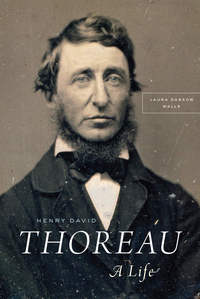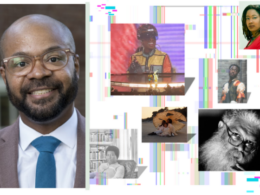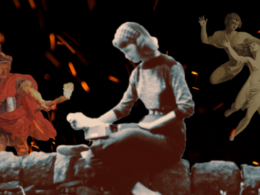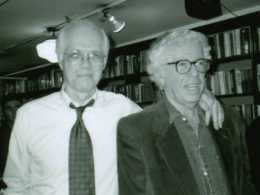Published to coincide with the Thoreau bicentennial this past July, Laura Dassow Walls’s new biography Henry David Thoreau: A Life (University of Chicago Press) is a galvanizing and irresistibly readable re-examination of the philosopher, social critic, and nature writer whose works still exert a clarion call on the American conscience more than 150 years after his death.
Like the recent Morgan Library & Museum exhibition dedicated to the author, the book gives us a Thoreau living and working inside a dense network of social relations, grappling with issues that may strike twenty-first-century readers as remarkably contemporary. Of the later years of his life, as the political tensions surrounding slavery only continued to mount, she writes: “He and everyone he knew were all implicated. . . . [T]he threads of the modern global economy were spinning him and everyone around him into a dehumanizing web of destruction.”
The biography has been generously received in the weeks since its release, with Jay Parini in the Times Literary Supplement calling it “a wonderfully brisk and satisfying portrait” and Michael Sims in the Washington Post lauding it as “the masterpiece that the gadfly of youthful America deserves.”
William P. and Hazel B. White Professor of English at the University of Notre Dame, Laura Dassow Walls works in the field of literature and science, with a particular interest in Thoreau, Ralph Waldo Emerson, and the Transcendental movement in general. Below, she shares some of the thinking that went into her biography.
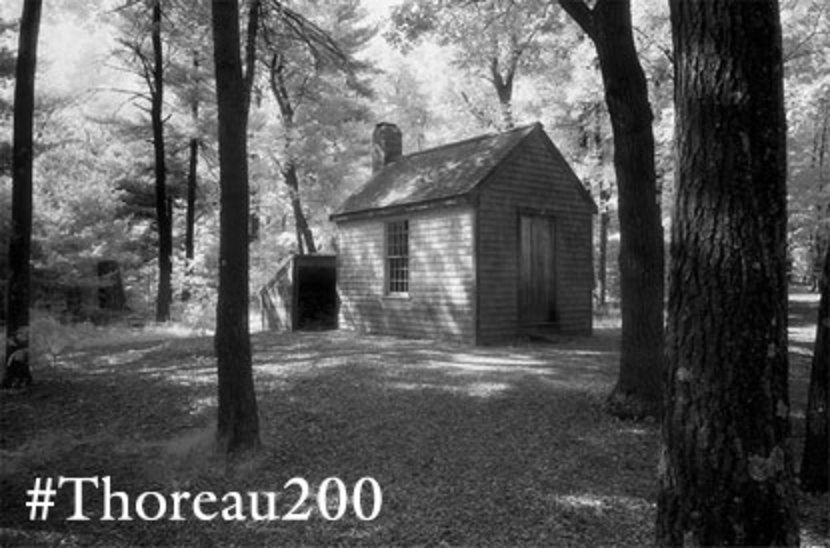 |
| Photo: © John Suiter. |
LOA: Henry David Thoreau: A Life arrives with an admiring blurb from Robert Richardson, who published his own distinguished biography of Thoreau thirty years ago. How does your book build on the work of Richardson and other predecessors?
Walls: I see my book as complementing two other major biographies, Walter Harding’s Days of Henry Thoreau (1965) and Robert D. Richardson’s Henry David Thoreau: A Life of the Mind (1986). Harding gathered an immense amount of information and made it available in very user-friendly form; his has been the standard biography ever since, and it will long remain a valuable source. Richardson offers an intellectual history of Thoreau, based on his reading, within a biographical frame; I did something similar with my first book on Thoreau, Seeing New Worlds (1995), focusing on Thoreau and science.
To write this comprehensive biography, I went back to the full sweep of original sources—journals, correspondence, reminiscences, newspapers, Thoreau’s published and unpublished works, and based what I wrote on what I found there. Since I’ve been working on Thoreau since the 1970s, over the years I’d already internalized the scholarly studies and earlier biographies; but the more I knew of his life—including newly discovered writings and recent scholarship—I came to feel that we needed a biography of the living Thoreau, the vital human being who was so much a part of his town, with a large and devoted circle of friends (plus a few rivals!). Given that we know a lot more about Thoreau and his time today than we did even a couple of decades ago, I saw myself bringing together a multitude of voices and orchestrating them on the page to tell his story in a fresh, new way, one that could reach a wide readership—pretty much anyone curious to know more about his life and thought.
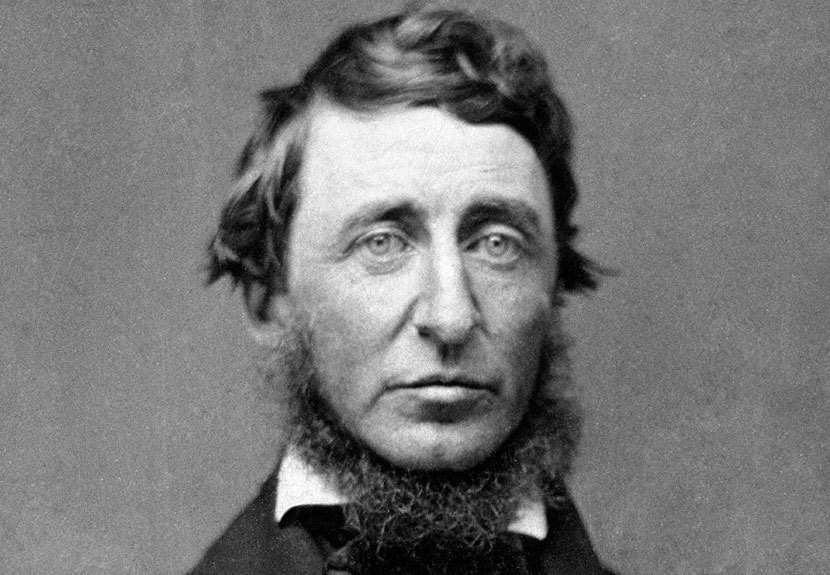
LOA: The Thoreau who emerges from these pages—son, brother, very much a citizen within a community—is notably different from what you call “the iconic hermit of American lore.” Why has the hermit image been so persistent? Do we misread Thoreau as a result of its tenacity?
Walls: I’ve come to think there are two sides to the hermit image. First, you could say he was a hermit, about half the time—that is, every day he set off alone to walk, as he said, with the serene, silent, and invisible “companion” who kept him sane. That hermit side gave us the Thoreau we love—the one who walked beyond bounds and dared us to do the same, who protected his creative solitude fiercely and rebuked anyone who intruded on it. But there was also the Thoreau who presided daily over the family’s boarding house dinner table, who was loving and funny and far too talkative, as his friends well knew, to keep to himself for very long. Good thing, too: Thoreau the great talker gave us Thoreau the great writer.
Second, beyond the biographical reality: America, too, is split on the hermit question. Part of the American mind yearns for the brave, solitary spiritual seeker in the wilderness, and that part wants Thoreau to be, and always remain, a pure hermit; since the need seems to be perpetual, no historical reality can shake it. Perhaps it shouldn’t. On the flip side, another part of America is deeply suspicious of those loners and solitary seekers, for they tend to be disturbers of the peace: troublemakers, schismatics, separatists, self-righteous prophets. And some of Thoreau’s pages—unfortunately, most of them are in the first chapter of Walden, the easiest for a reader to find—play on this hermit-back-from-the-wilderness-with-the-Truth persona. This narrative voice, meant to provoke us, can sound terribly condescending; interestingly enough, it evolved in his lectures, and what worked well before a live audience can offend in cold hard print! Many readers, hearing that whiff of condescension, get their backs up. Then when they learn that he went home sometimes for dinner, they accuse him of hypocrisy for not being a hermit. So he’s damned no matter what.
I do think this form of projection is interesting—it has a very long history, tracing back to newspaper publicity whipped up by his literary agent, Horace Greeley—but it’s not particularly helpful for understanding Thoreau. As Walden moves past the narrator’s early, angry phase, Thoreau reveals himself to be very much a seeker, full of questions—and in the end, full of hope for humanity. Thoreau’s closest friends were bewildered at the hostility engendered by his Walden persona, and since my biography hews to the biographical rather than the iconic truth, my Thoreau may surprise those who confuse the myth with the man. Because we have misread Thoreau, tragically in my view: he was neither saint nor hypocrite, but what he aspired to be: a whole human being. After beating up the myth for so long, we’ve lost sight of the man. I think it’s high time to change the conversation from the myth constructed by previous eras to a history that can better speak to our own.
LOA: One of the revelations of your biography is its attention to the inhabitants of Walden Woods prior to Thoreau, when the area was a “rural slum of outcasts, drunks, and derelicts,” including a handful of former slaves. What does excavating this (almost literally) buried history add to our knowledge of Thoreau’s stay at Walden, and the book he wrote about it?
Walls: The woods surrounding Walden Pond had for generations been a Concord commons, the place on the edge of town where you went to cut wood, fish, swim, or have a picnic; it was also the place you could make a home if you were, in essence, homeless, because no one much cared who lived out there, so long as they didn’t harm the woods. By squatting on Emerson’s land, Thoreau put himself in the same position as those “former inhabitants,” as he calls them, which is wholly in line with his intent in going to Walden: that is, to examine the economic conditions of modern life, both natural and human. Understanding the lives of those who came before him is crucially important for him; he includes them as part of the larger Concord community, the “invisible” poor whom he wants to honor and make visible. He also sees the fact that the economic system discards certain people as central to the social problem he goes to Walden to understand more deeply, and ultimately even to solve.
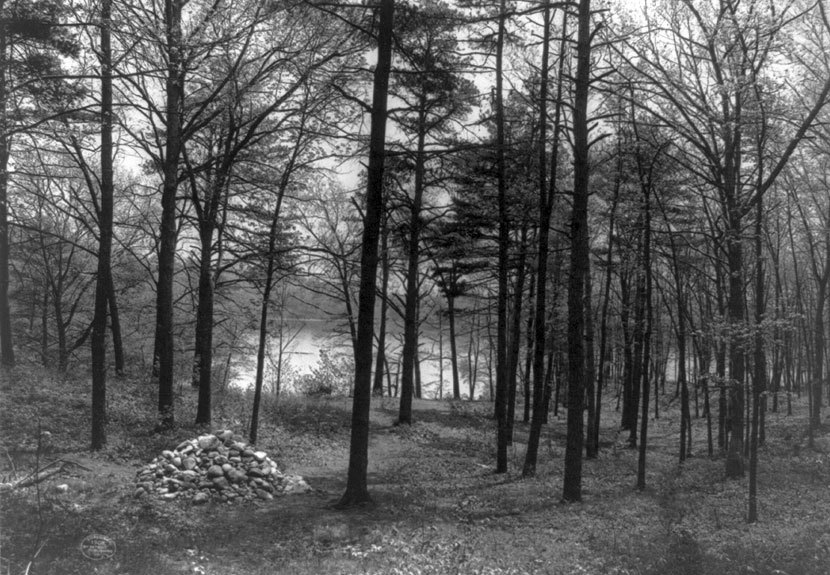
LOA: Your book counters, at length and in detail, the tendency Rebecca Solnit decried in her essay “The Thoreau Problem”—namely, that of separating Thoreau’s nature writing from his social and political commitments. Why is it so crucial to show how the two are integrally interrelated?
Walls: This is crucial because so long as we imagine these two are separate, we are living a schizophrenic life—“out of our senses,” said Thoreau in one of his best puns. To walk into “nature” (which, once your eyes are open, is everywhere) is to walk into a space free of distractions, and return to your senses—to re-inhabit your body. It’s also to engage what Thoreau called the “higher law”—the wider and deeper laws, both natural and spiritual, that subtend reality, which are corrupted by social conventions and political interests.
So take slavery, the dominant social/political evil of Thoreau’s day: when Thoreau insisted that American freedom was a lie until the four millions of slaves were free and equal with whites, he was speaking well beyond the bounds of accepted law, opinion, and convention. We should remind ourselves that slavery was the lawful reality of the United States as mandated by the President, Congress, and the Supreme Court. It was also economic reality, the inescapable, foundational pillar of capitalism. For Thoreau to refuse to accept slavery under these conditions meant appealing beyond economic self-interest and hierarchical power relations to assert the equality of all human beings, at a time when any assertion that Blacks and Native Americans were fully human was, literally, a radical statement. Until the 1850s this was very much a fringe position, held by a few courageous women and men who were dismissed as extremists.
Thoreau did have some good company, though: his mother and sisters were among the many women in Concord who got this grass-roots activist movement off the ground. They drew Henry into it after he returned from his 1843 sojourn in New York City. What was truly original was Thoreau’s ability to extend the ethical circle from humans to nonhumans as well—when he asks, for instance, about the environmental damage done by the dams that powered the Lowell cotton mills: “Who hears the fishes when they cry?” That is, fish, too, have the right to flourish; and so, moreover, do all living beings, including “vermin” like woodchucks and hawks, whom his neighbors shot on sight. This leads Thoreau to his ethical qualms about eating fish; it leads him to put aside hunting (in his youth, he was known as a crack shot); he eventually refuses to collect and kill specimens for scientific research, preferring to study birds and mammals in the wild, alive and going about their business.
To lose this connection and see “two Thoreaus”—one for social justice, another for environmental preservation—is to lose the fundamental critique that joins both causes: sheer self-interest, our will to power, cannot justify taking any action that harms another living being. This is not two separate problems but one single problem, with very deep roots and cataclysmic consequences. To think otherwise is to imagine we can separate ourselves from the food we eat, the air we breathe, the water we drink, and the whole circle of creation that enables our existence. This is, literally, to be “out of our senses”—a form of insanity.
LOA: Was it always your intention, when you embarked on this book, to underscore the continuities between Thoreau’s time and our own? Has our recent history affected your emphases in any way?
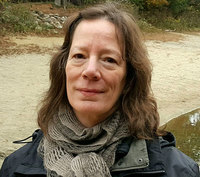
Walls: The continuities between Thoreau’s time and our own are a constant theme in Thoreau criticism, given that Thoreau witnessed the beginning of the industrial capitalist system that still shapes our social, political, technological, and intellectual horizons today. In that sense his critiques of environmental destruction, consumerism, factory and immigrant wage-labor, and market-based agri-business still sound fresh and penetrating.
It’s true that much of his criticism targeted nineteenth-century engines of manifest destiny: the railroad that crossed Walden Pond on its way to conquer the West, the economic system that tied “free enterprise” to ever-greater concentrations of wealth, the Mexican War, slavery of course, the extermination of Native Americans. While to some extent these issues have faded into history, his responses still resonate today, when so much of what we struggle with is the historical legacy of the same problems. Above all, “Civil Disobedience” articulates a method of resistance to injustice that’s still profoundly effective. So I didn’t need to underscore the continuities; they came along with our shared history—the more so because he gets in our faces about them! Thoreau provokes us, and he expects us to respond not only in a dialogue with him, but also by taking responsibility for our own moral choices in life. For he urges us to remember that we do, still, have such choices, knowing how we tend to forget this and go along with the herd.
I wrote my biography during the Obama years, so if anything it’s tinged with optimism: for all the looming challenges, during those years it did feel that the nation was on a path Thoreau would applaud. Now, of course, my book finds its audience in a very different moment, much more polarized and politicized. Thoreau declared that his purpose in going to Walden was to drill down through the “mud and slush of opinion” to “a hard bottom and rocks in place, which we can call reality.” Those are very, very powerful words today, when the very concept of truth, fact, reality, seems to be dissolving away. Indeed, our current moment feels very close to the 1850s, and that’s horrifying. I do think the parallels mean that Thoreau can provide us with some navigational aids—and perhaps a warning. But I’m also grateful that I completed my biography during a time of hope, for it carries that spirit along with it; that’s a profoundly Thoreauvian message.
